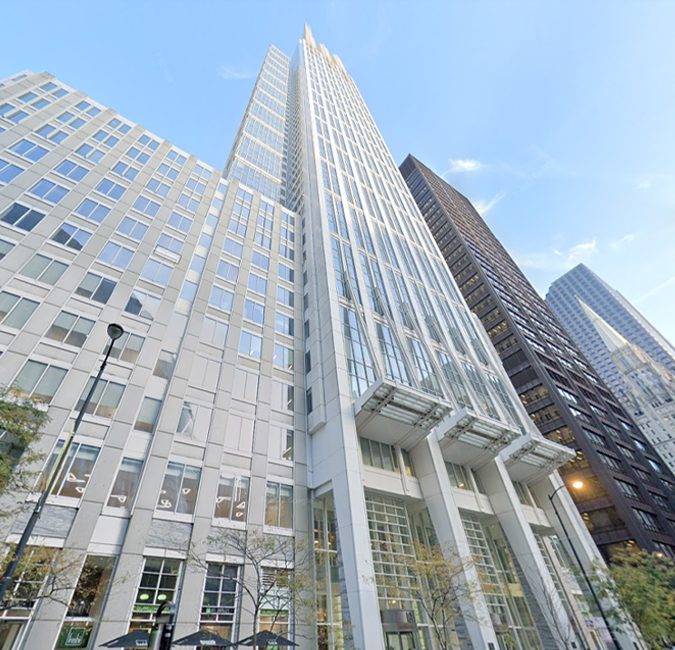The Assault on Women’s Only Spaces By Expanded Anti-Discrimination Laws
For some time, women have enjoyed a wide range of places that are deemed women only spaces. Such places range from locker rooms and bathrooms to women only homeless shelters, and battered women shelters. The expansion of Title IX protection to athletic programs led to the growth of women only teams in high schools and colleges, which has created many opportunities for young women. Important reasons exist for women only spaces, such as safety, privacy, fairness and religious considerations. Women only spaces, however, are in danger of disappearing; a result that will put women at risk and have a negative impact on their ability to participate in activities.
The expansion of anti-discrimination laws to cover “transgender identities” is allowing the intrusion of biological males into women only spaces. In many cities, counties, and some states, it is unlawful to deny a biological male entry into many women only spaces, if the biological male identifies as a woman. In 2018, for example, a women’s shelter in Anchorage, Alaska, was investigated by the Anchorage Equal Rights Commission for allegedly refusing to let a biological male into the shelter. The shelter provided a place where homeless women, some of whom were escaping domestic violence at the hands of a man, could go. The court did not need to address the constitutional claims raised by the shelter, because the court held that homeless shelters did not fall under the Anchorage anti-discrimination law’s definition of a “public accommodation.” The shelter could, therefore, continue to exclude biological males from its facility.
While the women’s shelter in Anchorage was able to preserve its women only status, this is not the case for the vast majority of businesses that want to create women’s only spaces. In 2021, for example, a fifty-two year-old biological male, who allegedly identifies as a female, was naked in front of a number of women, one of whom was allegedly a minor, in the Wi Spa’s women’s only section. When some of the women complained, the spa’s employees said they could not exclude him from the women’s section of the spa under California law.
It was later learned that the individual who exposed himself in the women’s section of the Wi Spa was a registered sex offender. Four women at the spa and the minor child allegedly told the police that the individual’s penis was partially erect when he exposed himself. He was subsequently charged with five felony counts of indecent exposure for his actions in the spa. While this may look like a victory for women’s only spaces, this is far from the truth. First, the incident shows that there are strong public safety reasons for limiting access to women’s only spaces at a spa to biological women. Second, the spa’s employees were probably correct that they could not exclude men who identify as women from the women’s section of the spa under California’s antidiscrimination laws. Third, it is unclear why he was charged with the five felonies, but it may have more to do with his status as a sex offender than his presence in the women’s section of the spa. The fact that this individual may not have been allowed to do what he did at the Wi Spa, according to the district attorney’s office, does not mean that a biological male who identifies as a women would face any impediments to being naked in front of women in the women’s only section of the Wi Spa.
The Olympus Spa in Lynnwood, Washington, recently learned how difficult it is to create women’s only spaces in light of the expansion of anti-discrimination laws. The Olympus Spa is a Korean spa that offers traditional Korean kiln saunas and exfoliation therapy experiences for women. Under Korean traditions, women must be naked for some of the services. The Olympus Spa claims that the spa is “designed specifically for women and our mission is to restore and rejuvenate women’s physical health as well as spiritual health.”
Pursuant to its policy, the Olympus Spa refused to provide services to a biological male who came to the spa. The individual then filed a complaint with the Washington State Human Rights Commission (“SHRC”) that is tasked with enforcing Washington’s Law Against Discrimination. The SHRC asked for various types of information from the Olympus Spa and there were discussions between the SHRC and the Olympus Spa concerning the women only policy. While the Olympus Spa entered into a settlement with the SHRC, the settlement did not bar the Olympus Spa from bringing a lawsuit challenging the constitutionality of Washington’s Law Against Discrimination as the SHRC was applying it against the Spa.
The Olympus Spa filed a complaint in a federal district court alleging that the Law Against Discrimination was unconstitutional to the extent that it forced the Spa to provide services to biological males who identify as transgender women. The Olympus Spa claimed that forcing it to provide services to biological males violated its First Amendment right to the free exercise of its religion. The district court dismissed this claim. The district court’s analysis essentially states that the Olympus Spa was not entitled to a religious exemption from the Law Against Discrimination because the law applied to everyone. While the district court was correct, given the way the decision was framed, there exists an important exemption that the court did not address. For example, if the Law Against Discrimination allowed exceptions for other types of businesses or allowed the SHRC to grant waivers, the State of Washington would have had a much more difficult time justifying the refusal to give the Olympus Spa an exemption. Put differently, the government cannot give an exemption from a law’s operations to some organizations for secular reasons and then discriminate against religiously motivated requests for an exemption.
It is unclear whether the Olympus Spa made such an argument. While the Olympus Spa may have lost its free exercise of religion claim, the free exercise of religion clause in the First Amendment may provide some level of protection in other situations.
The Olympus Spa also asserted a freedom of speech claim that was dismissed by the district court as well. The fundamental problem for the Olympus Spa, with respect to its free speech claim, was that the heart of its dispute with the Law Against Discrimination was whether it could exclude biological males from its facilities. This is not a freedom of speech issue. The Olympus Spa tried to thread this needle by claiming that the Law Against Discrimination compelled it to post information on its website that it did not agree with, and that it could not make certain statements on its website that it did agree with. The SHRC took the position that the Law Against Discrimination did, and could, prohibit the Olympus Spa from making statements to the public that it would only offer services to biological women. While this is a restraint on speech, the district court held that the restraint was incidental to a valid prohibition on discrimination. As an incidental restraint, the speech restraints imposed on the Olympus Spa were subject to a low level of scrutiny, which essentially guaranteed the dismissal of its free speech claim.
The Olympus Spa case shows that the First Amendment is limited in its ability to protect women’s only places. The Olympus Spa did not apparently assert a claim under the Equal Protection Clause contained in the 14th Amendment. The Equal Protection Clause may provide some protection, although this would represent a novel use of the Equal Protection Clause. One such argument might be that anti-discrimination laws, when applied to gender identity issues, have an unequal impact on women’s only spaces when compared to men only spaces. Such an argument would have to build on the fact that women are more at risk of being victims of sexual violence and abuse than men, which means that access to women’s only spaces cannot be treated the same as access to men’s spaces.
Another area where women’s only spaces are under assault is in schools. In early March 2023, for example, an eighteen year-old, biological male high school student took a shower in the women’s locker room in front of four female freshman. The girls were highly upset by this biological male, who claims to be female, exposing himself to them. The parents of the freshmen girls complained to the school, and the school allegedly did little to investigate or address their concerns. A law firm has now filed a complaint against the school, and some officials with the U.S. Department of Education, on the ground that the school and its officials violated Title IX, which requires schools and universities to give women equal access to educational programs and activities.
Title IX may provide young women protection from men invading their spaces in schools. A freshman is typically fourteen years old, which means that an eighteen year old man, not a child, exposed himself to a group of young girls at the high school. Allowing naked men to shower in front of young women could very well prevent young women from using their own locker rooms or showers. A school should not subject women, particularly young girls, from the embarrassment, fear and shock of having a biological male showering with them. Further, allowing biological males to have access to women’s only spaces at a school, such as a locker room, creates a risk that sexually inappropriate behavior or harassment toward young women may occur. Failing to protect women in this way may very well have a significant impact on the ability of young women to use these facilities or engage in a number of school related activities.
The level of protection Title IX may provide to women only spaces is an issue that courts will have to address. There are both legal questions and factual questions that will play a large role in any such litigation. One question is whether Title IX gives men who identify as women a right to access women only places in schools. Another set of issues include, for example, what type of school is involved (middle school, high school, or college), the location at issue (a bathroom, locker room, shower, etc.), and the overall impact the challenged conduct has on women.
Whether it be a violation of your rights under Title IX or another civil rights matter, it is essential to seek the guidance of an experienced attorney. Title IX conflicts are on the rise, and it is important that your rights, or the rights of your child, are protected. Contact The Law Office George M. Sanders to discuss your situation.
Previous Post
The Second Amendment and The Ability of Non-Violent Felons to Possess Firearms
A large majority of people would agree that violent felons should not be allowed to have firearms. What many people may not know is...
NEXT Post
The New Orthodoxy: Compelling The Use of Pronouns
Public accommodation/antidiscrimination laws proliferated after the civil rights victories in the 1960s. These laws were designed to prevent businesses from refusing to serve individuals...







